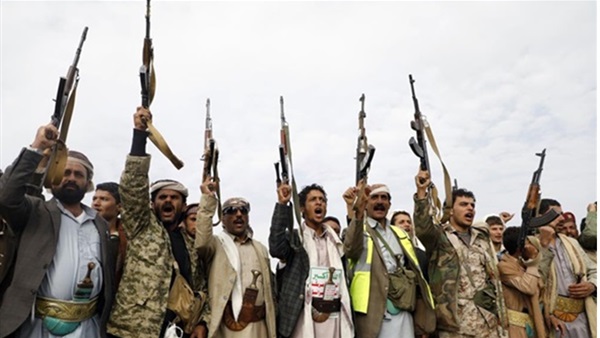Houthis lay their hands on Yemen's commercial projects

Since its coup in September 2014 and its control over Yemeni
capital Sana'a, the Houthi militia has continued to rob all state institutions.
No commercial entity has been spared from the repression and
violations of the group's gunmen who pass daily on shops in their areas of
control to obtain royalties.
Those who refuse to pay these royalties face imprisonment,
torture, and even murder.
Violations
On December 17, the Houthi group decided to shut down over
15 food production and import companies, in addition to a number of shops in
Sana'a and Dhamar governorates.
Two days later, the number of companies closed in areas
under Houthi control rose to 25, in addition to 20 bakeries in several
directorates in the capital.
The expansion of the closure process came a few days after
Yemeni activists launched a campaign on social media, revealing the extreme
wealth enjoyed by the group's leaders since the coup, as a result of the
financial extortion practiced by them.
Since the expiry of the UN truce in early October, due to
the Houthis' refusal to renew it for the fourth time, the Houthis have resorted
to threats to the legitimate Yemeni government to launch attacks if the latter
does not respond to the their demand of disbursing the salaries of all state
employees from oil revenues in the liberated areas.
The Houthis also focused on the collection of royalties or
levies from citizens to strengthen their military capacity in preparation for
confrontation with parties to the conflict in Yemen.
Pressures
Yemeni researcher, Abdel Hamid al-Masjidi, said Houthi
restrictions had escalated on the private sector to restructure what he
described as 'national capital'.
The group, he added, wants to lay its hands on companies so
that it can sustain the war and tighten its control over society.
"The Houthis believe in that whoever owns the wealth
owns the decision," Masjidi told The Reference.
He pointed out that in exchange for these Houthi pressures
on the companies, there is a recovery of Houthi capital and the establishment
of a parallel economy through the establishment of new companies with full
opportunities.
He referred to dominance by these companies in the energy,
communications, logistics, food, basic goods and medicine sectors.





